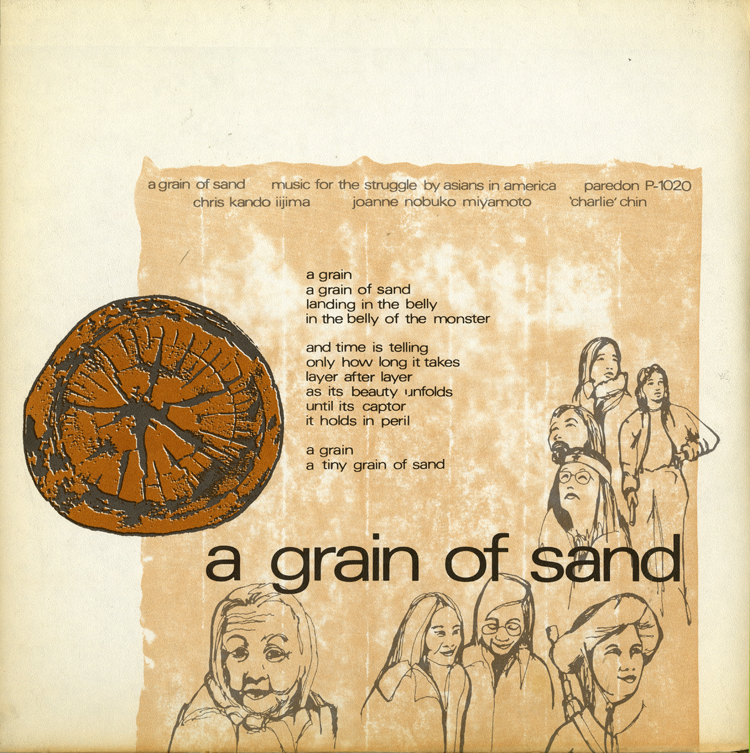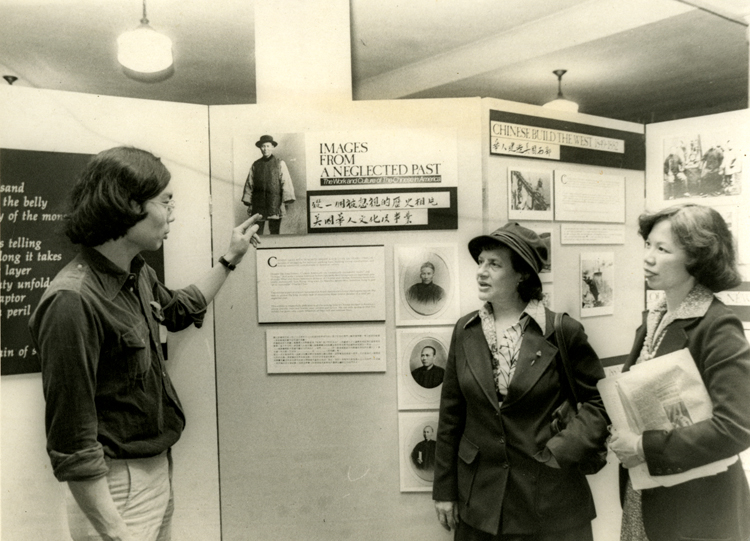A Grain of Sand: Music for the Struggle of Asians in America, is widely recognized as the first album of Asian American music. In the album, Chris Kando Iijima, Nobuko JoAnne Miyamoto, and William “Charlie” Chin attempt to verbalize all the political and personal conclusions they have come to as activist and Asian Americans. Personally, they view their own music “primarily political of which music was only a part of.”
In the song Yellow Pearl, they relate the oppression Asian Americans have dealt with to that of a grain of sand that gets trapped inside an oyster. In We Are The Children, they portray the experiences of Japanese Americans who were placed in internment camps during World War II. In Somos Asiaticos, they speak directly to the Latino community and express the similarities of our struggles. The other songs deal with topics of war, oppression, capitalism, and socio-economic struggle, they cause one to see and question the inhumane treatment of Asian Americans and other oppressed groups in America.


